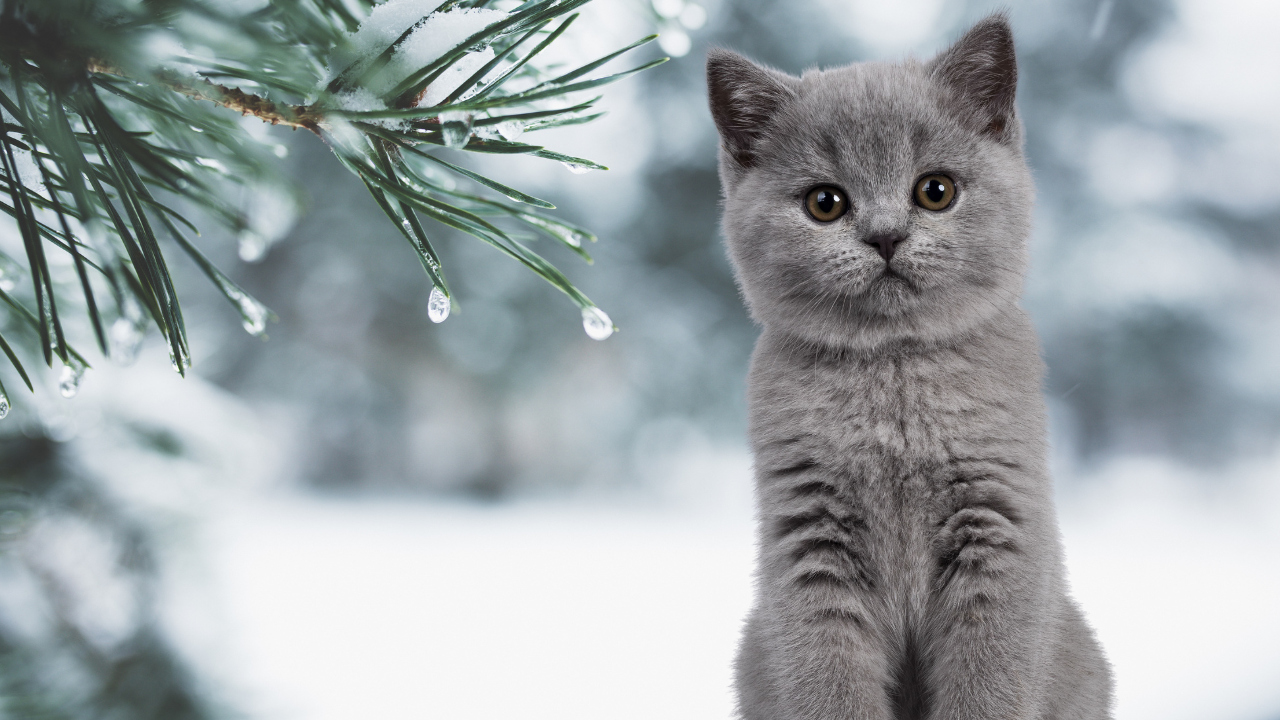
As the winter chill sets in, it’s crucial to pay extra attention to the well-being of our companions. Cold weather poses unique challenges for cats, both indoor and outdoor. From the risks of hypothermia to potential hazards like road grit and antifreeze, it is very important to keep your cat safe and warm during the colder months.
Staying Warm
Cats left outdoors for extended periods in freezing temperatures face the risk of hypothermia or frostbite, which can be fatal for older cats. Avoid leaving your cat outside for prolonged periods and ensure they always have access to warmth and shelter. Any environment below 45 degrees Fahrenheit (7 degrees Celsius) should be avoided. Accompany your cat in a safe, enclosed area during their first experience of snow to monitor their comfort. Ideally
Cat Flaps
For cats accustomed to toileting outdoors, make sure they can easily re-enter the house. Regularly check the cat flap to prevent it from freezing shut due to ice or snow, ensuring your cat has uninterrupted access to shelter.
Indoor Activity
Keep your indoor cat active and engaged with a variety of toys and activities, particularly as they spend more time indoors during the colder weather. This helps provide the necessary exercise and mental stimulation to keep them healthy and content.
Arthritic Cats
Cats with arthritis may experience increased joint inflammation in the cold. Create warm, comfortable resting areas and ensure easy access to their favourite spots, making their winter experience more comfortable.
Outdoor Cats
Provide suitable outdoor shelters for cats that remain outside. Options include sheds, garages, or even a dry, waterproof cardboard box with insulated bedding. Avoid clothing, towels, or blankets, as they can retain moisture and freeze in extremely cold conditions.
Road Gritting
Be cautious of rock salt used to grit roads and pavements, as it can be harmful to cats when ingested. Prevent your cat from walking through gritted areas or paths, and if they do, wash their paws immediately. Rock salt ingestion can lead to dehydration, liver failure, and pancreatitis, so be vigilant and contact your vet if you notice any symptoms.
Antifreeze
Check sheds and garages for hazards, particularly antifreeze, which is highly toxic if ingested. Secure antifreeze containers, clean up spillages promptly and be aware that even a small amount can be fatal for cats, causing kidney failure. Take precautions when handling antifreeze near areas where your pets may seek shelter.
Cars
The warmth of a car engine can be tempting for cats seeking refuge. Before starting your car on a cold day, tap loudly on the hood to give any sheltering cats a chance to escape, preventing potential harm.
With these winter care tips, you can ensure your cat stays safe, warm, and healthy during the colder months. By being proactive and attentive to their needs, you’ll create a winter environment that allows your feline companion to thrive in comfort and security.
